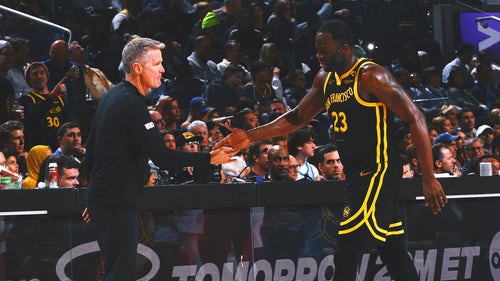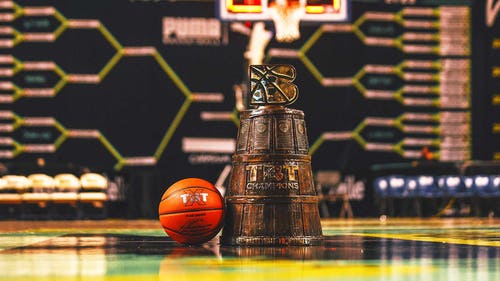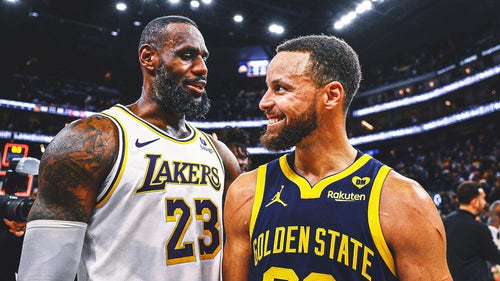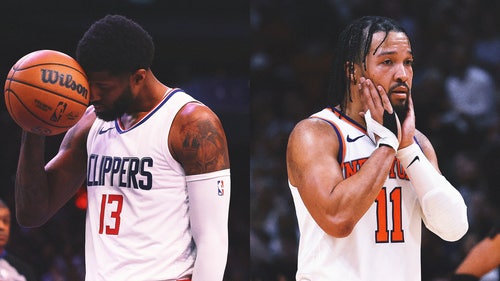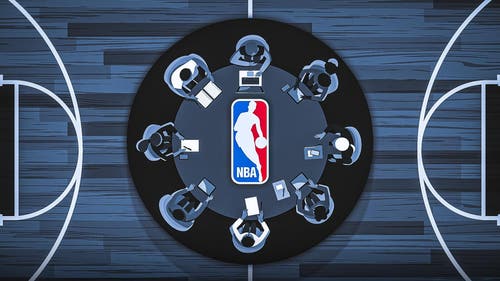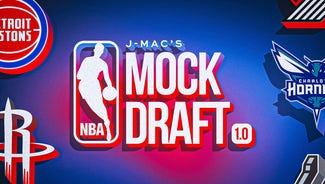
Election cycle shows the social activism gap between NFL and NBA stars
The best basketball player in the world also happens to be one of the most well-known people in the world. On Sunday, LeBron James stood on stage with Hillary Clinton in an attempt to rally his fellow Ohioans to vote for her. Three days later, after Clinton had lost, Warriors coach Steve Kerr, the leader of possibly the NBA’s most interesting team ever, ripped President-elect Donald Trump, ranting that “the man who is going to lead you routinely used racist, misogynist, insulting words.”
Football, the most popular sport in the country, is a different story. The NFL’s greatest active coach, Bill Belichick, sent Trump a handwritten note that, despite Belichick’s statements to the contrary, had all the familiar signs of an endorsement. And the league’s greatest quarterback, Tom Brady, went back into his apolitical shell after not-so-subtly placing Trump’s red hat in his locker a year ago.
How did the most visible figures in two of the nation’s biggest sports take such divergent paths?

To be sure, there are players and coaches on both sides of the aisle in both leagues. Hornets forward Spencer Hawes wore a “Hillary for Prison” T-shirt this week before the election. Steelers coach Mike Tomlin and his wife hosted a fundraiser for Clinton in the off-season. But it’s much easier to find Trump supporters (Rex Ryan, Richie Incognito, Jay Cutler) in the NFL, just as Clinton supporters (James, Dirk Nowitzki, Mark Cuban) were more visible in the NBA.
Both leagues have similar racial demographics, from players to coaches to general managers. Black players made up 69.7% of the NFL at the start of the 2016 season compared to 74.3% in the NBA. The NBA has more European-born players than the NFL, but both sports in general are pulling from a similar pool of socioeconomic backgrounds.
In his annual racial and gender report card for sports leagues, Dr. Richard Lapchick of The Institute of Diversity and Ethics in Sport gave the NBA an overall A for 2015, and the NFL wasn’t too far behind with a B.
“No other men’s league reaches the same points for race, gender or the combined score,” Lapchick wrote in July. “The NBA remains the industry leader among men’s sports for racial hiring practices. … The NBA more than understands that diversity and inclusion are business imperatives. Commissioner [Adam] Silver has been clear on this issue from the onset of his tenure with the Donald Sterling decision.”
Silver was swift in his decision to oust Sterling after his virulent racism was made (even more) apparent following a taped recording. He built more capital with progressives when he allowed players to wear “I Can’t Breathe” shirts in memory of the death of Eric Garner at the hands of the NYPD. And Silver continued his streak when he removed the 2017 All-Star Game from Charlotte after North Carolina’s GOP-controlled government refused to rein in House Bill 2, a state law that limits anti-discrimination protections for lesbian, gay, bisexual and transgender people.
The NBA has also been progressive in promoting individuality. Since David Stern’s tenure as commissioner, the league has excelled at nurturing its top players’ star power. The NBA fined Michael Jordan for wearing shoes that did not conform to its rules, but the league eventually softened its uniform policy. Thirty years later, the NFL fined star wideout Antonio Brown more than $6,000 for having light blue in the cleats he wore in Week 1.
The NBA hasn’t been perfect, of course. The mandatory dress code imposed by Stern in 2005 was the first of its kind in pro sports and was clearly aimed at the league’s black players. (Allen Iverson is usually the face of this, but don’t forget Joseph Forte wore a throwback Bill Russell jersey on the Celtics’ bench once.)

In the last decade, basketball has survived a referee gambling scandal, the rise of superteams that upset competitive balance and social movements critical of law enforcement led by the game’s biggest stars. Still, the NBA is enjoying its best ratings since the end of Jordan’s playing career.
So when Kerr said it’s “tough” to accept the election and when Pistons coach Stan Van Gundy calls Trump “brazenly racist”, it’s because the NBA has provided an environment that will facilitate the language more than any other sports league. ESPN analyst Jalen Rose believes title-winning players will decline Trump’s future invitation to the White House, and when the Cavaliers visited President Obama on Thursday, James said that he’s not sure he would return to the White House if his team won it all in the next four years.
Brady visited 1600 Pennsylvania Avenue after his first three Super Bowl victories, when George W. Bush was in office. In 2015, he cited a prior family commitment as the reason why he couldn’t join his Super Bowl XLIX-winning teammates in the Rose Garden.
• The MMQB: Election Day with Eagles cornerback Malcolm Jenkins
Later that year, in September, he conducted an interview at his locker with Trump’s “Make America Great Again” red hat placed conspicuously (and possibly strategically) behind him. Brady, who will likely go down as the greatest quarterback to ever play with a Super Bowl LI victory in Houston this February, has called Trump a friend. Brady’s wife said on Instagram she and her husband did not vote for Trump, though Brady wouldn’t confirm that this week.
Brady’s coach confirmed he wrote a letter to his friend Trump, who read the letter aloud at a rally in the days before the election. Belichick allegedly wrote to Trump that his “leadership is amazing” and that he hoped Tuesday’s results would “give you the opportunity to make America great again.” Belichick swore the letter wasn’t political, even though the letter seems to be a clear endorsement and Trump said he had been allowed to read it publicly.
The issue here is not who prominent NFL personalities support or which way they lean ideologically. In fact, it’s not even that many players are discouraged from speaking up due to their short shelf life in a league that spits out most of its players before their second contract. It’s that these iconic figures either could not, or refused to, provide any substance for their publicized stances.
Let’s apply the Colin Kaepernick Test to this. When Kaepernick’s symbolic kneeling became international news, observers demanded he explain himself. He did so eloquently (whether you agree with his stance or not) and has backed up his position with community action. Belichick thrust himself into a public conversation by writing a letter to Trump and, according to the president-elect, giving him permission to read it out loud. Shouldn’t Belichick be required to give an equally detailed response to his stance rather than just repeat “Seattle” over and over?
Speaking of Kaepernick, he did not vote. Whether he should have can be discussed elsewhere. But once again, reasons were demanded. They should also be demanded of Alabama coach Nick Saban. Arguably the greatest college football coach of all time—and inarguably the greatest active coach—Saban shocked many this week by saying he didn’t even know the election was Tuesday.
“It was so important to me that I didn’t even know it was happening,” Saban, one of the country’s highest-paid public employees, said at his press conference. “We’re focused on other things here.”
The “other things here” would be his Crimson Tide facing Mississippi State this weekend and trying to remain in the top four for the College Football Playoff.
“I hope whoever our leader is will do all that he can do to make our country safe and improve the quality of life for a lot of the people we have in our country, and I don’t think I am qualified to determine who that should be.”

This statement is shocking, insulting and mind-numbing. First, if Saban didn’t know the election was Tuesday and doesn’t believe himself qualified to cast a single ballot, it’s safe to assume he abstained from voting in this election despite being an active registered voter in the state of Alabama. Secondly, c’mon. He knew the election was Tuesday, but this kind of quote only plays into his myth that he’s all business, all the time and can’t be bothered with anything short of a trophy presentation after the national championship, such as exercising his civic duty.
But third, and most importantly, it proves Saban was delinquent in his duties as a leader of young men. There are currently 115 players on Alabama’s roster, and for most, this was the first presidential election in which they could vote. Apparently, the man they have committed three to five years of their lives to may not have even encouraged them to go to the polls.
It’s no wonder the NBA and its players are more socially aware.
This article originally appeared on









































































































































